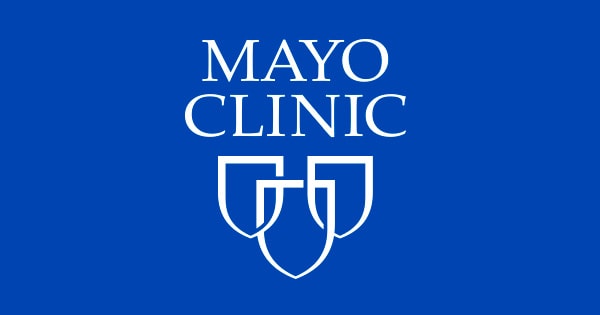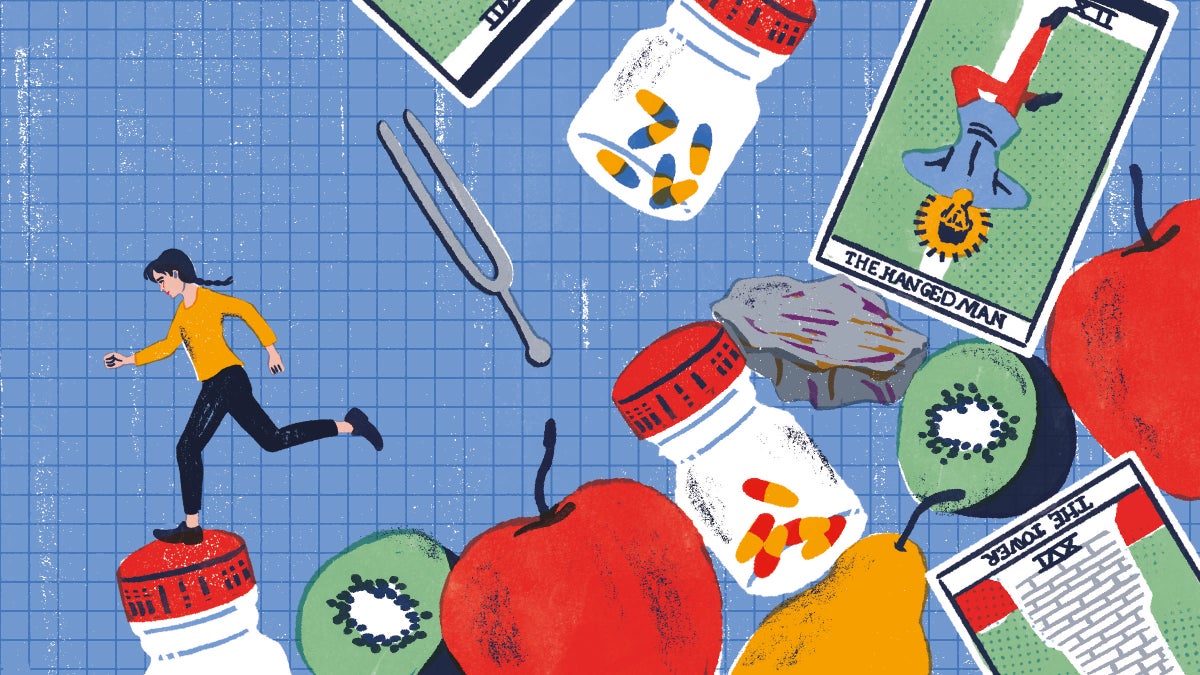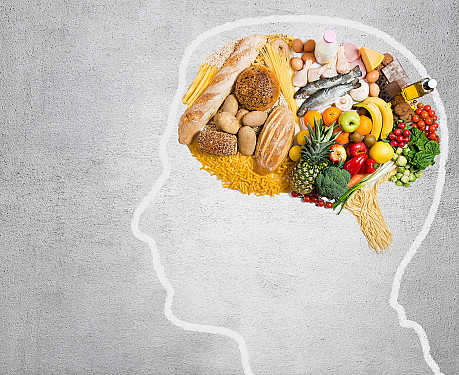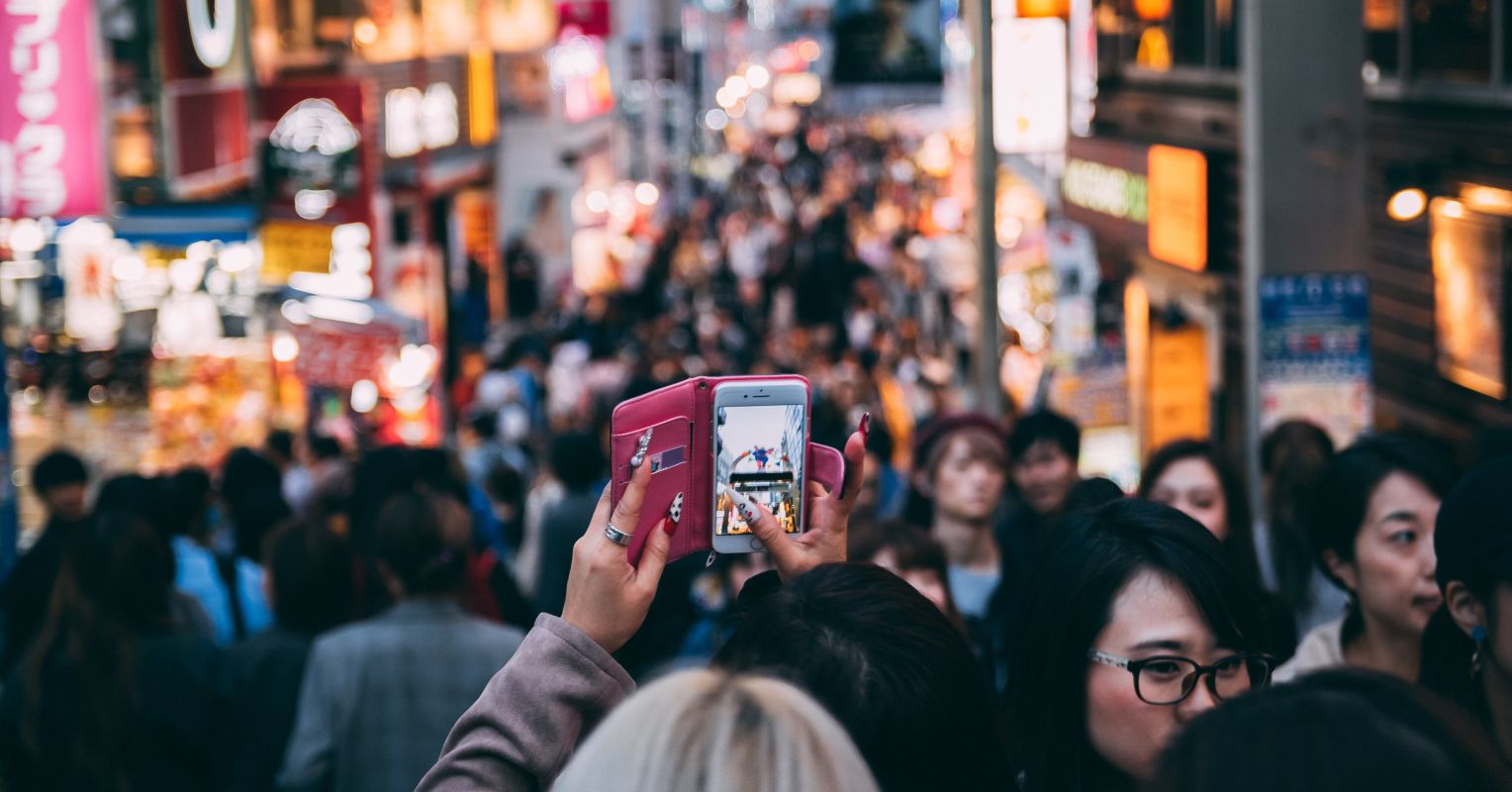
If you've ever been locked in an internal battle of absolutes, let's talk. I might have some ideas
Dear Reader: I am no doctor, nor am I a psychiatrist. I am sharing what I deal with and how it works for me. I briefly discuss suicide thoughts. If you believe that you may have BPD or bipolar or any one of the many conditions which are part of the complex human experience, please kindly do your research and seek professional help, or not, as you choose. None of this article should be construed as advice. Under no circumstances should you stop your medications, if you are taking them, without medical supervision.
This is a long piece, and likely best absorbed in chunks.
What on earth was the matter with me? Was I seriously mentally ill?
I wanted to know the answer. All I knew was that I had terrible eating disorders and worse. I was in my early forties and I wanted to fix whatever was wrong with me. My moods swung one way and the other, I had overly-emotional reactions to relatively insignificant things. Despite knowing better intellectually, I kept interacting with the world in black and white extremes out of terrible fear. I knew that was no way to live.
I'd had a pretty strong social anxiety disorder as a teen and into my early twenties but had no words for it at the time. Here's how to understand that:

Please note this important excerpt:
Other specified anxiety disorder and unspecified anxiety disorder are terms for anxiety or phobias that don't meet the exact criteria for any other anxiety disorders but are significant enough to be distressing and disruptive.
That's important because it's so general as to include just about anything which causes distress. And because it's so general, to my mind, that makes it somewhat useless as a diagnosis. But I'm just getting started here.
There had to be an answer, I thought, and if so, a way forward. I wanted to get fixed and believed that the medical community had the answer. Or so I fervently hoped.
So I took a test. That test significantly benefited the clinic which did the testing, if it came out positive and the patient had to be prescribed meds. Of course it works that way. It's a pipeline. So natch, I was told I was bipolar. Back then it never occurred to me to take issue with a diagnosis.
The meds I was prescribed, including lithium, very nearly killed me off. Within 72 hours I was suicidal, realized that it was the meds, and promptly destroyed them. Felt better immediately. That should have been my first clue. I'll get back to that in a moment.
Two things to know about this, one factual and one anecdotal. First, the facts:

The anecdotal: A friend has a buddy who sells pharmaceuticals. Said friend bragged to my buddy that so many young women were being diagnosed with bipolar that he was getting rich. And would stay rich forever, because his assumption, not without merit, would be that these women - and plenty of men, too -would be on those meds for the rest of their lives.
Vampire.
I will decline to comment further on that. I will, however, address the former.
A few weeks ago I visited my primary care provider at the VA. Shortly afterwards, and for the very first time ever, I got a letter from the VA detailing, in alphabetical order, all the many diagnoses I'd been given in the forty-plus years I've been seen by the VA system.
It's kinda stunning, not only because I'd forgotten most of them (handy when you want to forget that thing you got from that person whom you'd rather not mention) but also because previous VA doctors had never bothered to discuss a number of them with me. Several of which were damned important back then, if for no other reason than it might have changed what I did about it.
Instead, as with so many veterans, the VA threw a slew of medications at me, assuming that would salve if not solve the issue. Then, other than some general talk therapy, the VA left me to my own devices, which sadly is so often the case.
Don't get me started on that, except for this:
Ask for your doctor's notes, then read, research and understand them. Only then do you and I have any kind of control over our treatment.
Many decades after I left the service I was finally able to address the rapes that had happened, which led to another diagnosis: PTSD. My goodness. Which one do I choose to address, right? PTSD, bipolar? Anxiety disorders?
But wait! There's more!
Somebody along the way had diagnosed me with Borderline Personality Disorder, which is likely the result of incest. There was repeated sexual abuse in the Army, which probably exacerbated those behaviors. This was brand new to me, now that I am seventy.
I might have BPD. I just might. The description made a whole lot of sense, now years later, as I look back over an entire life.
It was the beginning of how to understand how binary thinking got a foothold. This gave me context. Not an excuse for what I think and do, but context.
But I am not bipolar. Here's a good way to understand the important differences:

It appears that more women are diagnosed bipolar than men, although the jury is still out. We are likely born with bipolar, some say. BPD develops. As a result, it responds better, according to the research, to talk therapy, although depending on severity, other interventions might be necessary. As with all things, it depends. Health is incredibly individual and needs to be individualized.
Since with mental illness, various symptoms tend to overlap, a hurried doctor might hear one or two items and leap to conclusions. Sometimes bad ones, as in my case.
But wait! There's more!
Since I've also had a slew of concussions from my adventure travel. Wouldn't you know it, some of the symptoms of post-concussion syndrome are similar as well. It's perfectly understandable that a provider would make a mistake, akin to trying to interpret "flu-like symptoms," which can mean anything from a cold to meningitis to HIV.
In our over-eagerness to put a label on anything that presents itself in the human condition, such as gerascophobia or fear of aging, the mental health community has handed us a vast library of labels by which we can categorize all the things which are wrong with us. I think that's a bit wrong-headed, in a way, but stay with me here.
Here's part of why: given the plethora of categories from which any provider has to choose, invariably they're going to be wrong some of the time. Even a lot of the time, especially now.
This is just one of thousands of reasons you and I have to do the work ourselves to question, research and truly understand our health, and never EVER take a doctor's word for granted. They are often wrong. This article addresses that problem just in emergency departments:

From the article:
The study, conducted by Johns Hopkins for the Agency for Healthcare Research and Quality, states that among 130 million ED visits in the U.S. per year, 7.4 million patients are misdiagnosed. In addition, 2.6 million suffer an adverse event, and about 370,000 suffer serious harm from diagnostic errors. (author bolded)
And then there's this:

From the article:
According to new research, Medical diagnostic errors affect 12 million Americans each year. Estimates put the number of deaths linked to misdiagnoses at between 40,000 and 80,000 per year in the United States alone. There is a 20 to 30 percent chance that women and minorities will be misdiagnosed with cancer. (author bolded)
Given how similar mental health conditions are, and how often they overlap as do the ones that I've listed which appear to pertain to my experience, you can see how easily a misdiagnosis can happen. Since these conditions can involve powerful medications, that can be damaging or worse, deadly.
While we need to be able to trust our providers, our post-COVID world involves reduced staff, overworked and over-tired doctors and providers, which will likely lead more and more- and has already- to misdiagnoses, accidents and mishaps.
You and I HAVE to stay on top of our own health. It's not optional. It's critical, now more than ever.
Back to my personal experience. Let's talk about the meds, shall we?
When powerful medications are prescribed for something you don't have, that's a problem on multiple levels. You may well deal, as I did, with a slew of confusing and very significant side effects. The problem with this is that future doctors then may often further misinterpret those presenting symptoms, as they did in my case, as just aging.
Here's how to understand this:
https://www.mdlinx.com/article/these-common-medications-can-mimic-dementia/rENGO3iiwOdQJySvDxUPV
Mixing scripts and common over-the-counter drugs can be devastating, not just in older folks but all of us.
Doctors rarely challenge our meds as the source of the problem. You and I have to do that. Polypharmacy is a growing problem as we often either don't know or forget what we're taking, and even if the doctor does ask, we may not be able to answer honestly.
For those who are taking drugs for some of the conditions I've described above, here's yet another key piece we have to consider,which is how they can make us very ill.
Take a look at these side effects (note how often diabetes is mentioned):

By the time I was 64, a serious athlete with disciplined eating habits, I had all kinds of symptoms which made no sense at all. I was experiencing what I call medically-induced aging. I was also again experiencing suicidal ideation, when my life was full of joy and excitement and adventure. Suicidal thoughts would intrude right when I was planning another amazing trip. That was insane, not me.
I called crap on the meds, researched them, and identified the sources of the side effects. Then I carefully cycled off all of them, with medical supervision.
Thirty-two discrete and debilitating symptoms resolved in just a few weeks. Holy shit Batman. I was a whole new person without the layers and fog of medications which had been prescribed for something I didn't have.
That left me to start over again. With a clean slate and a clear head, I was able to ask better questions about why I had spates of high emotion and other behaviors which circumstances didn't justify. I blamed the concussions, the PTSD, which didn't help, but those didn't explain everything.
I didn't get an answer until I got that letter from the VA.
The BPD diagnosis in my VA file was, in fact, a gift.
When I read about the symptoms, it made perfect sense for my starting point decades ago. It also made sense that the meds provided for the wrong diagnosis of bipolar sent me- and likely millions of fellow Americans with equally-confusing behaviors - down the yellow brick road of poor outcomes and "aging" symptoms which so often have little to nothing to do with aging.
So many of us are subject to extreme emotions, are exhausted from them, and truly want a way out. Just like I did. When those emotions rise, and they always show up again, I still want a way to manage them. Sometimes, if not quite often, simply getting an accurate handle on what's handling us is a real help.
And lots of us need it right now.
The National Institutes of Health states that close to sixty million adults in America have some kind of mental illness.

There's more to this than the question of complex mental health issues.
So many of us are sexually traumatized as children, and that trauma inevitably leads of dysfunctional behaviors. My parents also behaved with wild emotional swings and dad was an alcoholic, so for me this was perfectly normal. As it will be for all the children now growing up with parents who also have splitting, BPD or bipolar behaviors, or the like.
The NIH didn't include my folks or my brother in their study, but they would have qualified. My parents grew up during the Depression and were driven by terrible, debilitating fears of food scarcity, lack and poverty. We hoarded everything from toilet paper to food scraps, and my entire family medicated with alcohol except for me. My brother medicated with drugs and alcohol and lost his battle at 62.
So what's normal? Do we really even know any more? Or has our understanding of what constitutes "normal" take into account the extreme stresses of everyday life, with the sickness of social media, the hateful messaging and our awful American diet?
We emulate what we see modeled around us. Right now we see splitting behaviors (stay tuned, definition below) everywhere, which makes it devilishly difficult to define what's normal any more. I'm not sure we even know how to define it.
We as a society can often be extreme in our attitudes. Especially today, given social media's ability to push us into opposing sides. It's teaching us to think in dysfunctional, binary ways. We need only to watch our current political divide to see how binary thinking is acted out on the larger stage.
It's fair to wonder if a good many of us behave as though we are bipolar or BPD simply because of the push-pull manipulation of social media. Such behavior is terribly immature (don't get me started about immature politicians, please).
If you're interested in taking the first steps towards weaning yourself off social media, see this:

I also highly recommend Digital Minimalism: Choosing a Focused Life in a Noisy World by Cal Newport.
So let's go large, shall we? Because to my mind, rather than chase meds and doctors who really can't tell the difference between one condition or another because too many overlap, perhaps the larger question is overall wellness, which feeds into prevention, which supports our ability to manage everything else. Including the inevitable wounds of just being alive.
Here I'm not addressing the Wellness Industrial Complex which is just one more way to manipulate us into spending money to do things which are often just free. For more on that, please see one of my favorite writers, Brad Stulberg:

We have, as a society, made ourselves sick emotionally and physically with a lot more than just social media. The American diet, our love of sugar, our sedentary habits, social media, isolation, lots and lots of ways we have made ourselves terribly sick body, mind, spirit, psyche.
Why is this key? Here you go, and let's only address the food piece briefly:

I could add more but you get it. So lousy diets affect cognition, cause inflammation, make us horribly ill (diabetes, cancer, heart disease, etc.) and cause depression and anxiety. When we are depressed or anxious, we often take all kinds of medications, including anti-anxiety meds, which can cause, among other things, diabetes, see above.
Is anyone else starting to see a circular pattern here? I am.
Just posing thoughts, which make a certain sense to me.
Let's go back to the extreme moodies, which can be from any one of a number of sources. Kinda like those flu symptoms, remember?
Here's another factor:
Today's hustle culture, the all-or-nothing push to produce, is a perfect example of the same thing I've lived:

That's exhausting for us and for those who love us. Full on or full off. So many of us don't even know we do it. Often if we do, we don't know how to stop, or at least better manage, those behaviors and the exhaustion that so often comes with them.
You will note that the Wellness Industrial Complex, like dieting, is just one more hustle culture. Not a damned thing well about it.
In addition, so many of us, myself included, are so caught up in binary, all-or-nothing behaviors which are familial and therefore familiar and normal, we don't even question them. Like with Depression-Era parents for my generation.
I am questioning.
First, what the research says about BPD. They call it "splitting:"

https://www.priorygroup.com/blog/understanding-splitting-in-borderline-personality-disorder
Those were the articles which helped me put things into perspective. It also helped me, with a bit more research, understand why being diagnosed with PTSD and Post Concussion Syndrome and Anxiety disorders confused the issue and most especially me, as I was trying to sort out precisely what I needed to do over the years.
Since I've now got a whole bouquet of diagnoses from which to choose, I am questioning all of it. Because as for millions of Americans, chances are there isn't any one single thing that needs addressing. We need to address the whole of us: body, mind, spirit. As a society, as a species, we are crying out for care, not more meds or hacks or tricks.
I used to think I had it all figured out when I got a diagnosis and think THIS IS IT, only to realize that IT was only a small piece of an ever-shifting, changing puzzle that is our lived humanity in a most complex time.
Chances are there are a whole lot of factors, just like in my life, and we need to take a careful and calm look at all of them. Then, we can see where the intersections are, and start making better choices about what kind of care we really need.
Some of this, maybe even a lot of it, might apply to you. Certainly if you've had head injuries, if your diet is questionable, if you've dealt with early sexual trauma, there is a good chance that like me, there might be a few conditions doing a collective do-si-do inside you.
But there is no one thing. Never was. Life isn't that simple. It's binary thinking to want there to be ONE answer or NONE. It's a whole slew of answers which invariably and maddeningly lead to a lot more questions. That's part of what Deep Work looks like, and I've been doing Deep Work for decades. Deep Work allows us to learn how to live well, even thrive, without final answers and fixes.
And that is the whole point:
Being able to live comfortably in the question is a very high-end skill which goes a long way towards healing a great many of the wounds we all bear.
So I came away from all that with two Very Big Things.
First, no matter how smart we think we are when we come up with a brand-new word to describe a brand-new mental illness or disorder, all that does is create more confusion. First, for the poor sod doctor who is doing their best in increasingly challenging conditions, then to provide a diagnosis to the poor sod who's trying to deal with it. Or them, as the case may be.
To that, perhaps the above will help you see that nothing about this is easy, or simple, or straightforward. I suspect our desire to know what is wrong with us and then by god FIX IT is misplaced.
Let's stop focusing on what's wrong with us, and start focusing much more on what's right, what's working, and what's breathtakingly wonderful about each and every one of us.
Which leads me to this, which is where I am right now:
Second, over the course of any long life, should be we be so lucky, we are going to be wounded. How much and in what way is as varied as is our collective humanity.
Some of us begin that way, some of us get wounded very young, some of us stay wounded and milk that wound for attention or something else, and some of us try very hard to understand what's up and deal with it. We may try doctors, medicine, self-help, any or all of a thousand different ways to find a cure.
Ultimately we are likely to discover that there is none. There is only the deeply complex, constantly-changing self which gathers experiences, sometimes more wounds, and if lucky, plenty of wonder.
If really lucky, we choose to learn to eat well, find friends who share the hard road with us (much less expensive and maybe better than much talk therapy in many cases, as in mine), move a lot and find purpose in our presence here.
All four of those things, especially the strong social support, likely go a great deal further in healing us and helping us deal with life than medications alone. Those are the same four things that I pound when I talk about aging vibrantly.
Our purpose needs to be something larger than a lifetime spend trying to identify what's wrong with us. The way I see it, and I could be wrong, by taking the emphasis off the assumption that there is something flawed or wrong with us and instead asking how can we live our best lives given the particular set of circumstances we have, the answers may become simpler.
That's if for no other reason than we don't further insult our bodies with all manner of medications which in and of themselves make us sick, or sicker as the case may be.
Social media, advertising and societal messaging are all happy to bombard you with what's wrong with you because there is great profit in that approach. One step towards better mental health is to surround yourself with people who remind you of your worth. Including the person you see in the mirror every day.

The mental health community will keep right on coming up with more and more exotic conditions for the various complaints we present. My heartfelt belief is that many of them wouldn't even exist if we would take care of our bodies, brains, hearts and minds in better ways. No medication of any kind will ever replace real friends.
Nothing but love replaces love. That may sound simplistic to you, but I suspect that the underlying causes of so many of these complex-sounding conditions is the lack of it.
If we have good close friends, if we take care of our precious bodies and brains responsibly, and if we keep finding reasons to be alive and well in the world, my guess is that the wounds will often take care of themselves. Everyone walks this world wounded.
Perhaps, ultimately, it's what we choose to do about our hurts, and how we incorporate those experiences into our sacred selves, which truly allows us to heal at the highest level. Our example, should we do this work, heals others as well.
I found this article (part of a series) by Dr. Mark Rego in Psychology Today helpful:

Do you feel pulled apart inside? I know the feeling. Do you react to the world in binary ways, out of fear? I have. But meds never helped. If anything they nearly did me in. I can't speak for you, but I suspect one answer for so many of us is pretty simple: taking better, loving care of ourselves, and then of those around us.
Find your tribe, invest in them and yourself, and see if some of what troubles you softens around the edges.
Should you seek professional help? I did. Ultimately some of it was worthwhile; the medications were not. Will I look into more help? Not sure yet. I might. But I am putting greater emphasis on the social support, good food, movement and purpose.
To that, I am spending my Sunday having breakfast with a good friend. That's more healing in 90 minutes than I can get with weeks of talk therapy.
Call me crazy, you'd be right. I think we're all probably a little crazy. It's what we do with it that makes all the difference.
And I'm going to go love my brand of crazy.

Dear Walkabout Saga Reader:
Thank you so much for taking a few minutes out of your life to read my work. WalkaboutSaga is an act of love and devotion, and I hope that you found value in it.
If my work appeals to you, may I kindly invite you to consider joining those Patreon supporters whose generosity keeps the gas in my tank as it were.
Such articles take time, resources, research and effort. Even a small amount of support truly helps me keep this going. In challenging times, I recognize that even a small amount is hard. Those who can give, I appreciate it. Those who cannot, I hope my words are helpful.
My purpose is to Move People's Lives. I can do more of that with your help.
Thank you.
You can explore that option here.
However you decide to partake of my writing, again, thank you.










Comments powered by Talkyard.